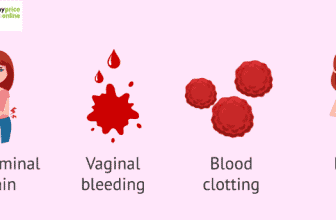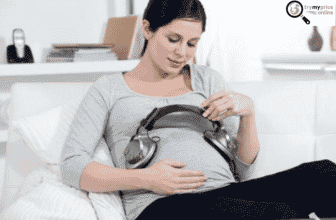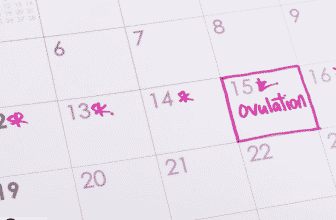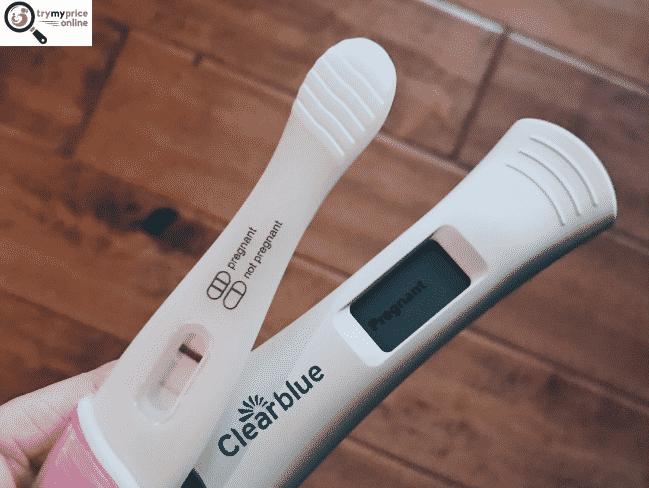
Chemical pregnancy causes, A chemical pregnancy occurs when the pregnancy ends before the fifth week. A chemical pregnancy can be identified by a positive pregnancy test followed by a negative result a few weeks later. The vast majority of women who get them have healthy pregnancies. And here are some more details about Chemical pregnancy causes.
Related: B6 And Unisom during Pregnancy: Is It Safe?

faint line on pregnancy test hours later
Chemical pregnancy causes
A Chemical pregnancy causes are miscarriage that occurs in the first five weeks of a pregnancy.
An embryo develops and may even embed in the lining of your uterus (implantation), but then it stops growing.
Chemical pregnancies are so common that many women who miscarry are unaware of it.
A chemical pregnancy can be distressing, especially if you’ve been trying to conceive for a long time.
However, just because you’ve had one chemical pregnancy doesn’t indicate you can’t carry a child to term.
Many women who have had several miscarriages go on to have healthy pregnancies.
Related: Pregnancy test with salt
Are Chemical pregnancy causes legitimate?
Because the embryo stops growing, a chemical pregnancy terminates early.
It differs from a clinical pregnancy, in which a fetus may be seen.
This does not, however, eliminate the possibility of a chemical pregnancy.
It’s possible that learning you’re expecting a child will make the event feel more real.
Hearing a heartbeat is sometimes enough.
Each person’s perception of the experience is different. Every experience is valuable.
Related: What does it mean that the pregnancy test is negative but no period there is?
Is a chemical pregnancy harmful?
When it comes to dealing with a chemical pregnancy, there is no one-size-fits-all solution.
It may be a relief to find that you are no longer pregnant if you hadn’t planned on getting pregnant.
If you’ve been trying to conceive without success, a chemical pregnancy might be distressing.
However, only because your pregnancy ended early does not rule out the possibility of becoming pregnant again.
It also doesn’t rule out the possibility of another pregnancy.
Related: What week of pregnancy am i in
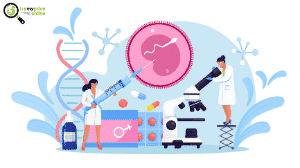
clear blue pregnancy test very faint vertical line
Who is affected by chemical pregnancies?
A chemical pregnancy can happen to anyone who is capable of becoming pregnant.
If you’re using in vitro fertilisation to conceive (IVF),
You’re more likely to identify a chemical pregnancy because these pregnancies are routinely monitored.
However, IVF alone is not a risk factor for chemical pregnancy.
Your chances of having an early miscarriage rise if:
You’re at least 35 years old.
Your uterus is unusually formed.
Your hormone levels are either high or abnormally low.
A sexually transmitted infection has infected you.
Related: Unisom for pregnancy nausea and how to use it
Are chemical pregnancies common?
They are extremely common. Only about a quarter of all pregnancies last longer than 20 weeks.
And roughly 80% of miscarriages occur in the first trimester.
It may be difficult to determine the prevalence of chemical pregnancies.
Many women will miscarry before they receive a diagnosis.
Related: Rexall pregnancy test review detailed one
What factors contribute to a chemical pregnancy?
The embryo creates hCG, a hormone that it needs to grow, in a chemical pregnancy.
It’s also the hormone that pregnancy tests look for when determining whether or not you’re expecting.
You can get your pregnancy test from amazon.
When an embryo finishes growing, it stops producing hCG.
Chemical pregnancy causes

To sum up, about Chemical pregnancy, we should mention that, Chemical pregnancy causes do not have a treatment. However, many women who have an early miscarriage go on to have safe pregnancies in the future.
References:




